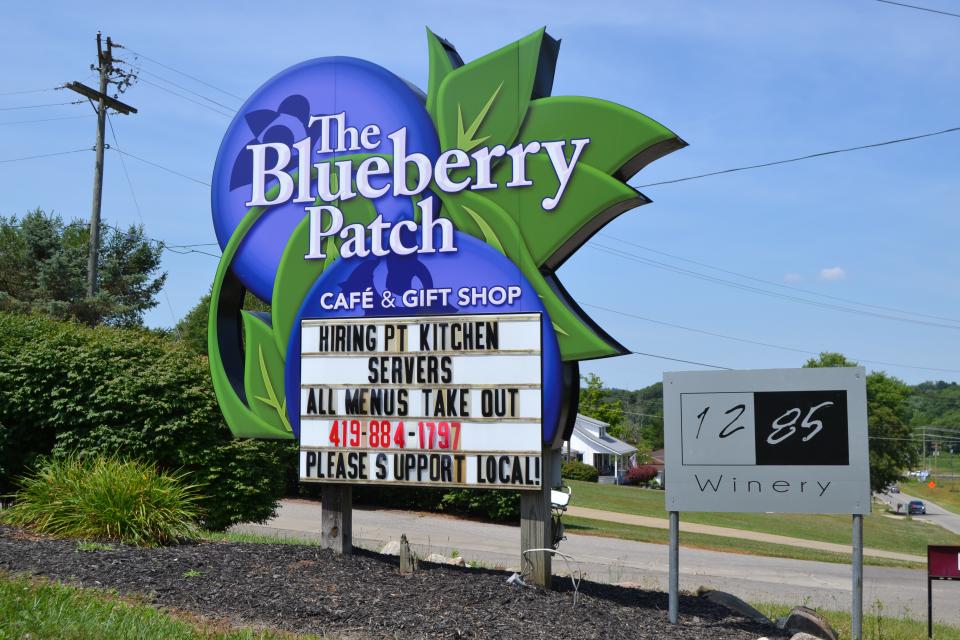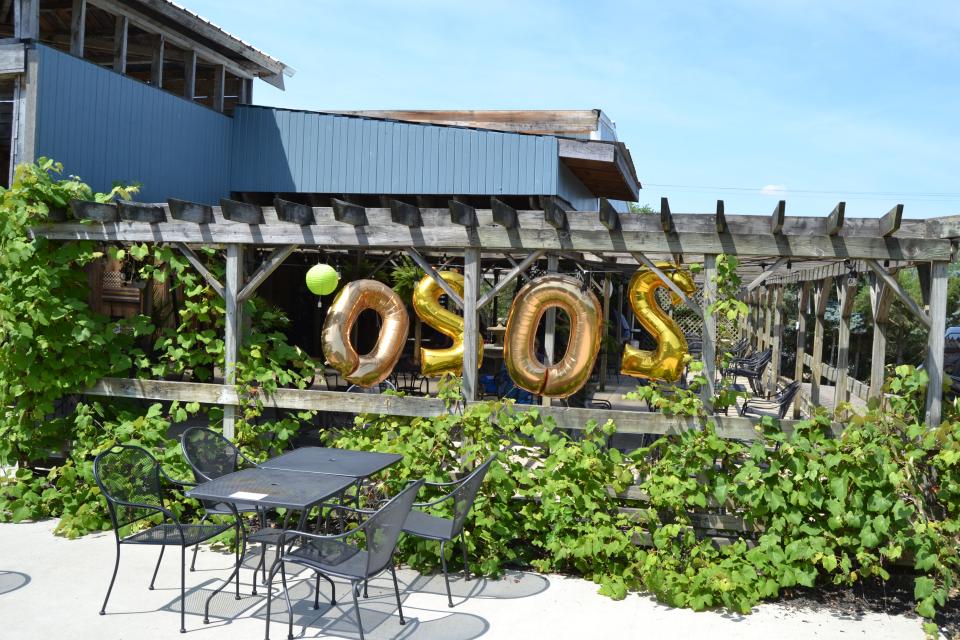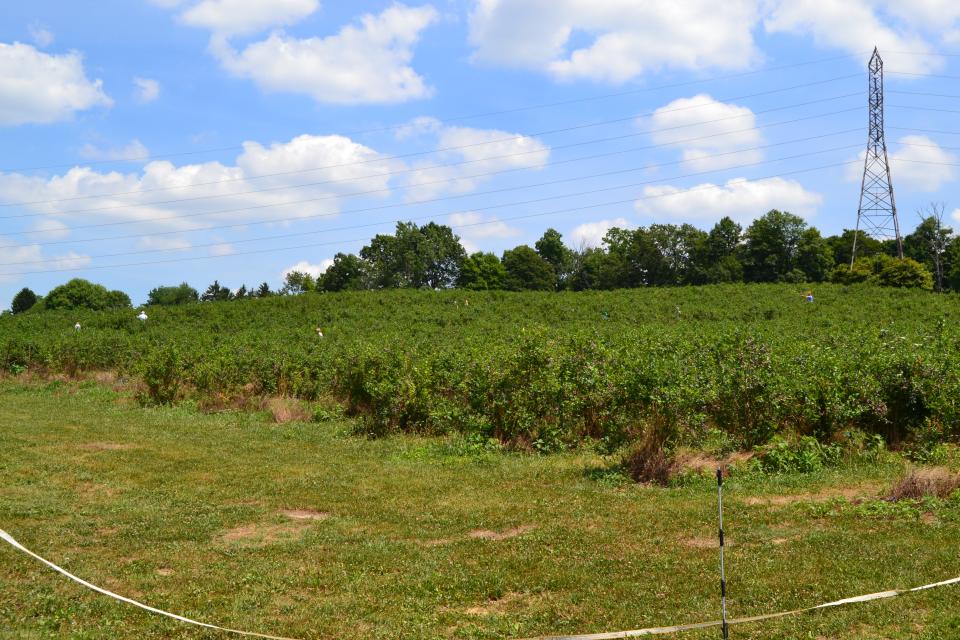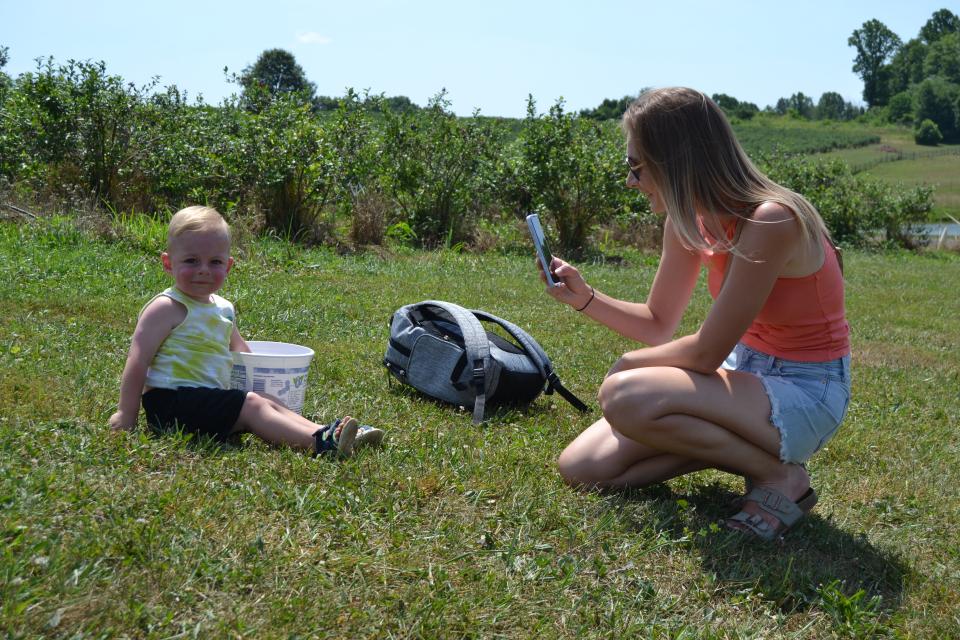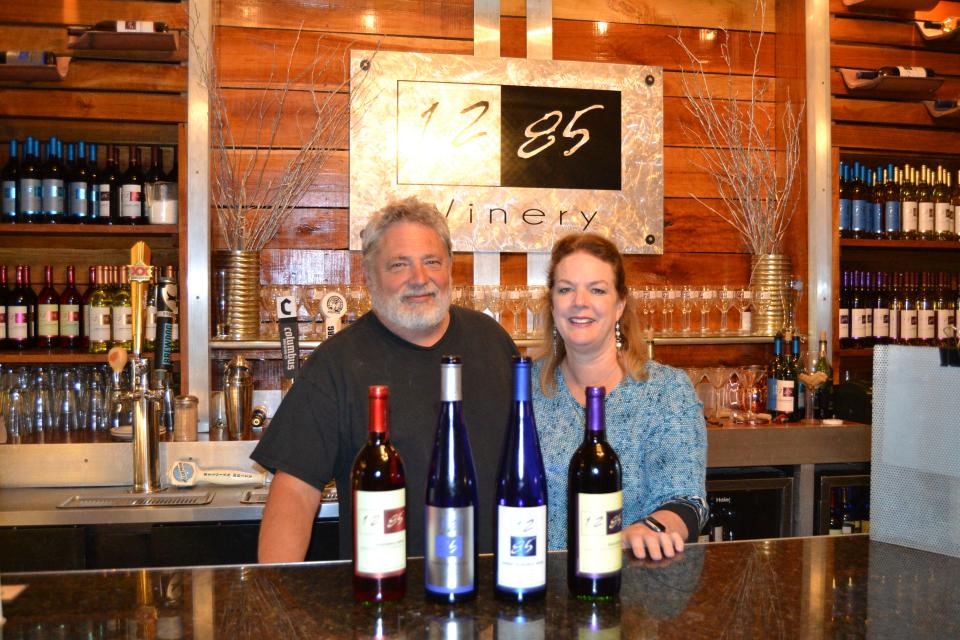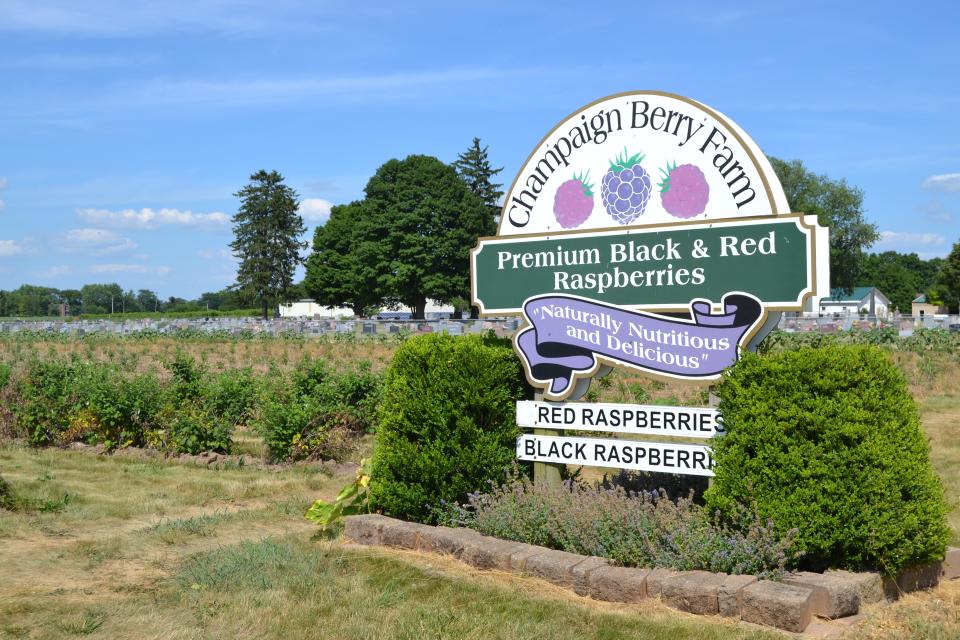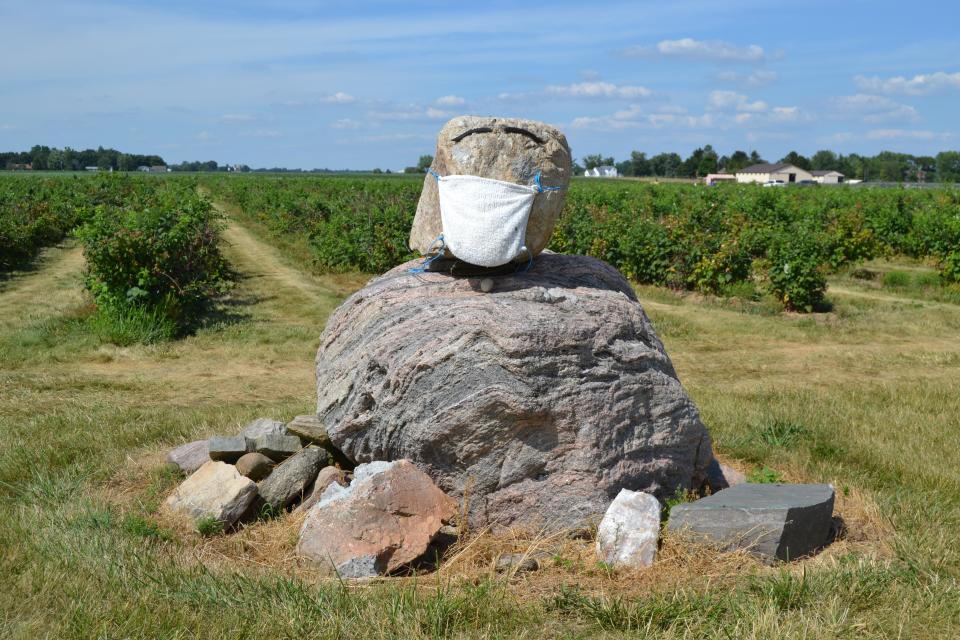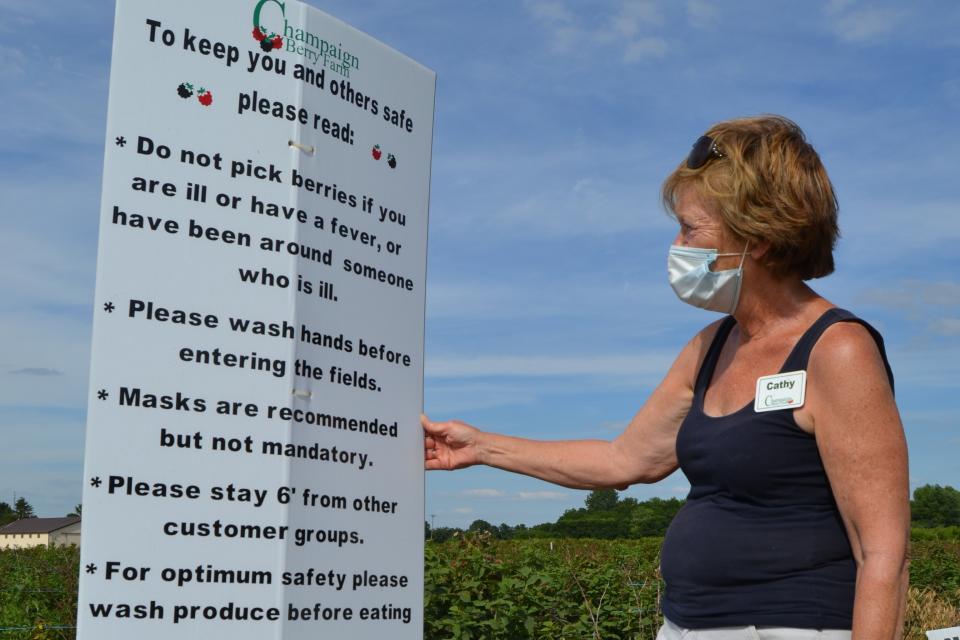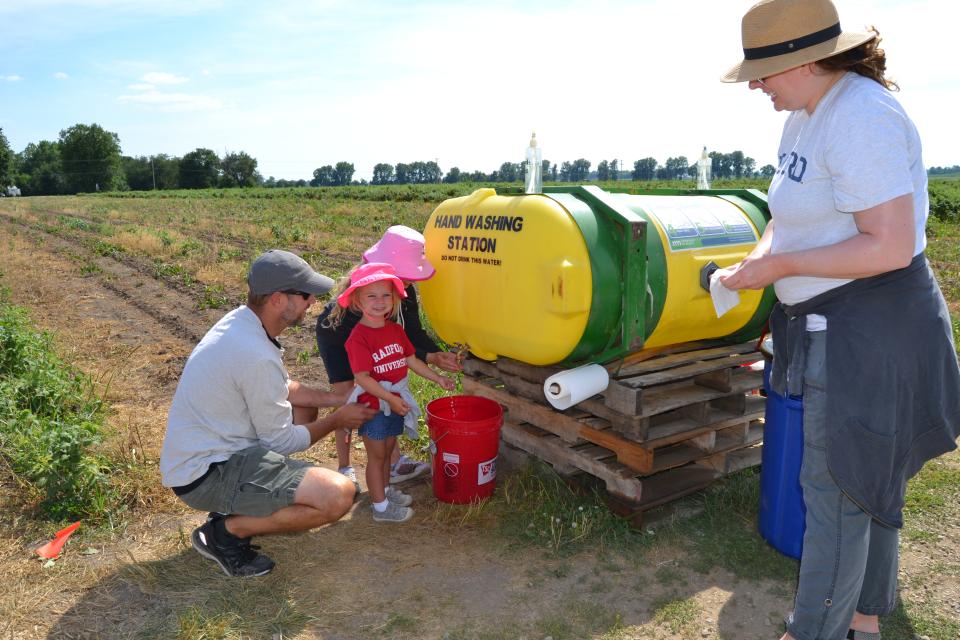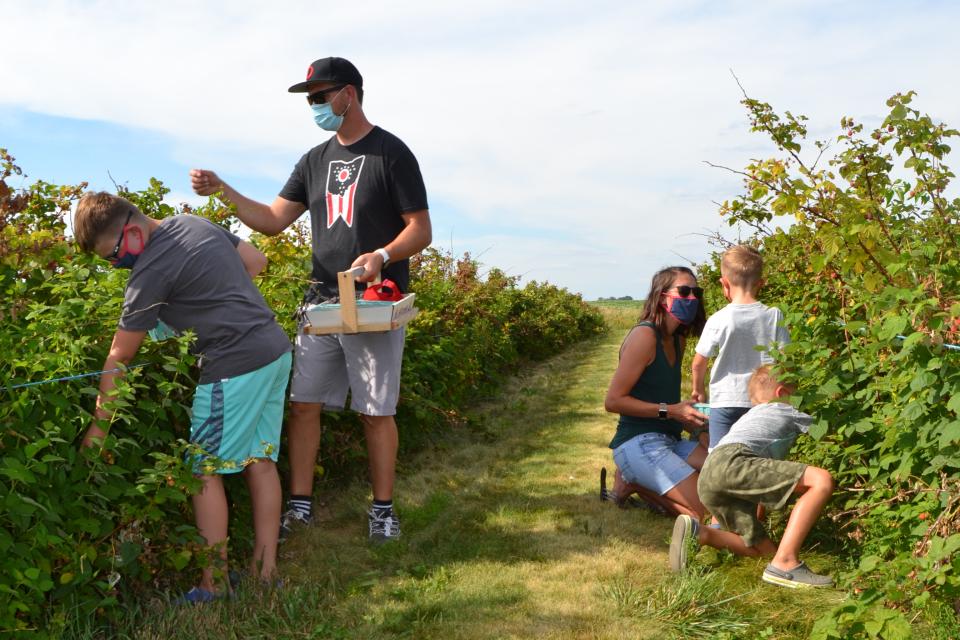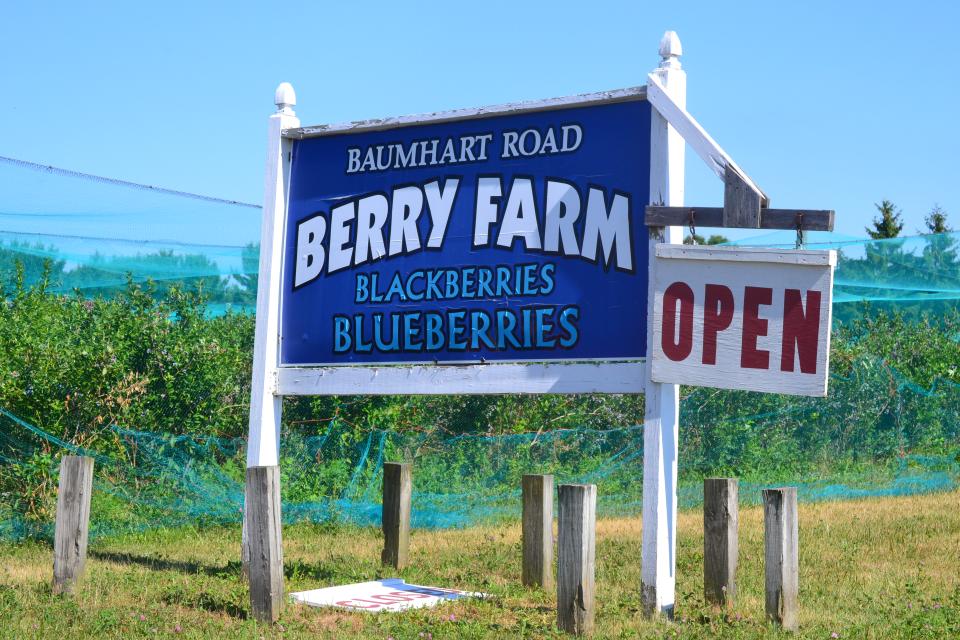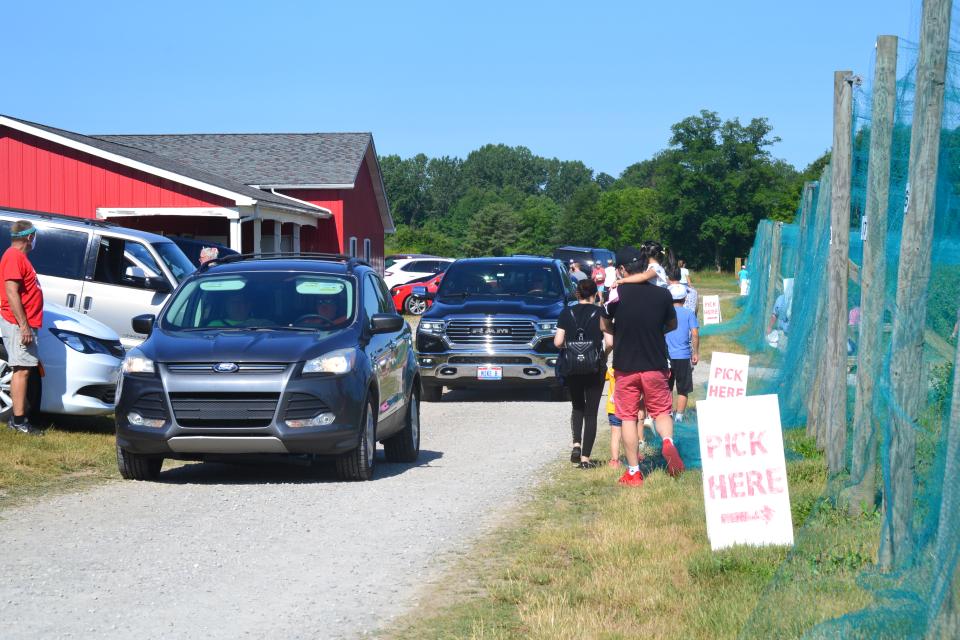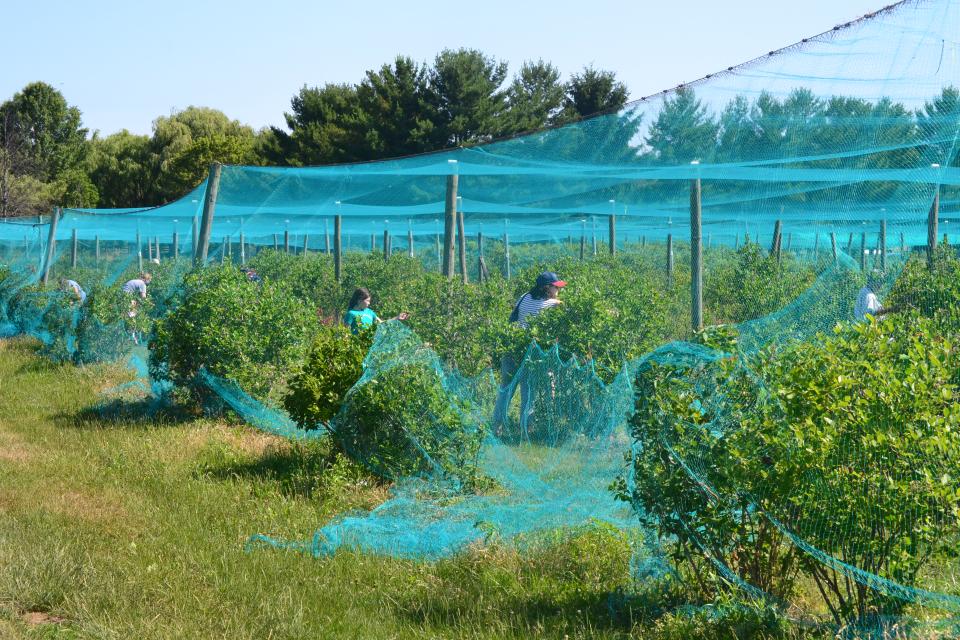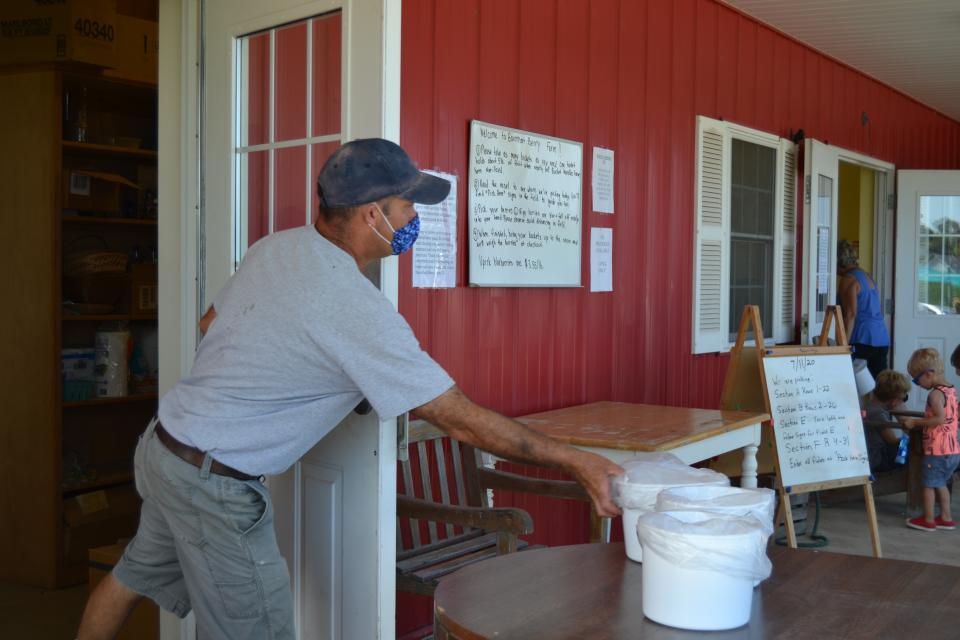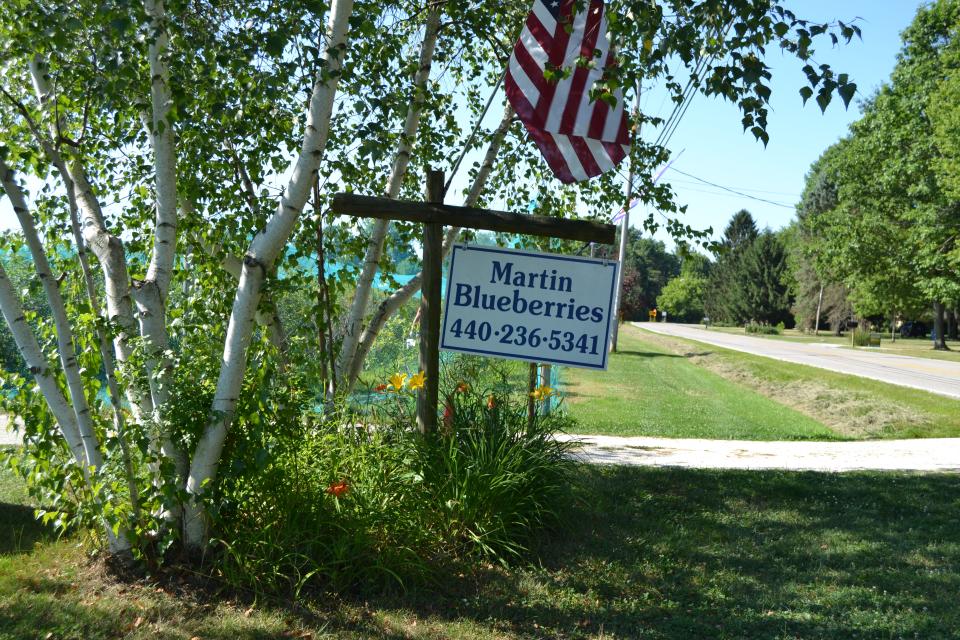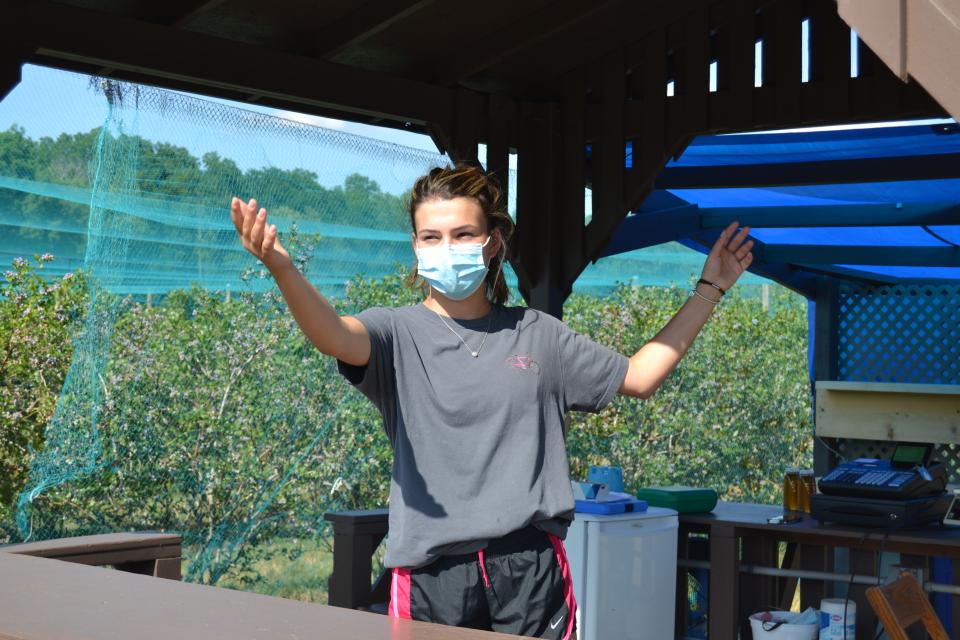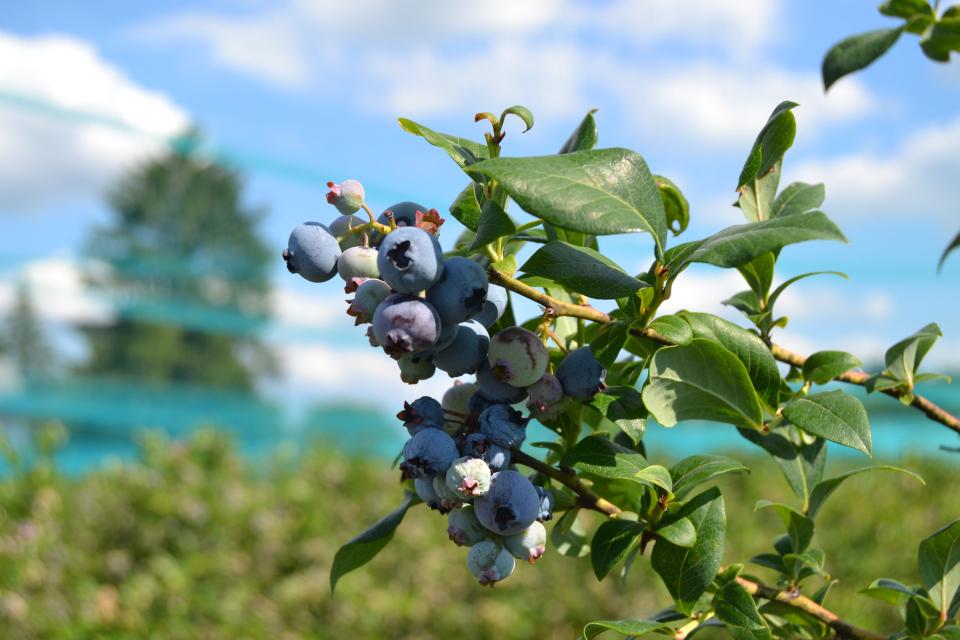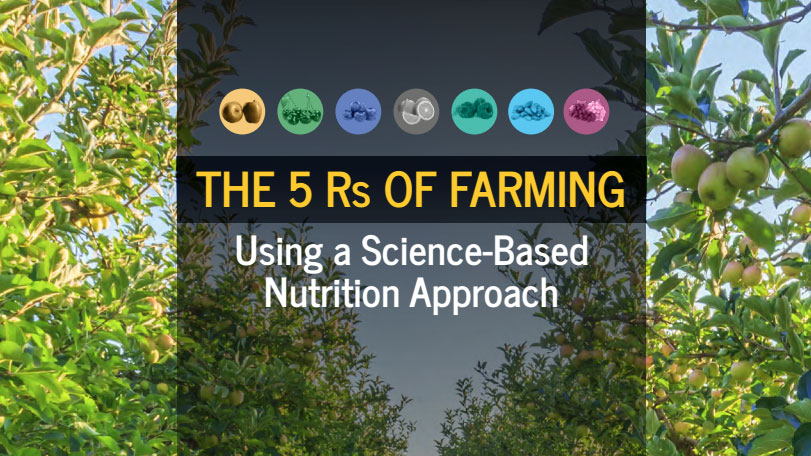U-Pick Farms Growing to Be Great Escape From Pandemic
The mom from nearby Columbus, OH, looked up from the ‘Nova’ red raspberry bush she and her young boys had just picked clean. With 6 feet separating her and the owner of Champaign Berry Farm, she shared a bucketful of gratitude through her cloth face mask:
“We’ve been coming here the last four or five years, and I was SO glad to hear you were open this year.”
Apparently, she is not alone.
Pick-your-own (PYO) farms across the U.S. are largely making the most of an otherwise dire situation this year. Under the scope of agritourism, business is booming during this summer of COVID-19. The primary reasons behind the success are as obvious as they are unanimous in light of nationwide health concerns and pandemic-induced lockdowns.
For starters, entertainment venues have largely been closed since March. But farms, as food producers, are considered “essential businesses.” They have remained open. Meanwhile, customers have opened their own minds ever more since the start of the pandemic in terms of picking their own food choices — literally, in this case.
“We have been amazingly overwhelmed,” the owner of Champaign Berry Farm, Cathy Pullins, says. “It all started with black raspberries on July 3, and from that point on, we have had more customers than we’ve ever had for both pick-your-own and people wanting us to pick for them. We’re trying to get those picked, but we may not be able to fulfill all of those orders.”
Pullins, President of the Ohio Produce Growers and Marketers Association (OPGMA), writes a column for the organization’s newsletter. With the summer PYO season approaching, and with COVID-19 having already coursed across the country in the spring, she warned her constituents that business was “going to go one way or the other: We’re going to be overwhelmed or we’re not going to see people.”
Why might growers not see anyone?
“Because,” Pullins says, “people would be afraid to come out.”
They have been far from that. “On Sunday we were three deep (in parked cars) in the hay field,” Annette Weber, the proprietor of Martin Blueberries in Columbia Station, OH, says. “I was, like, ‘Oh, wow, what’s going on here?’”
A little less surprised at the size of summer PYO crowds has been Mike O’Grady, Farm Manager at Baumhart Berry Farm in Vermilion, OH. During a perennial plant sale two months earlier, he had gotten a good sense as to how prevalent cabin fever was becoming.
“From a public standpoint it was a disaster. We had SO many people,” O’Grady says. “We sold our 5,000 plants in a few hours. Traffic was backed up probably 2 miles this way, 2 miles that way. The police were so mad. They couldn’t get in. They’re like, ‘Shut it down, shut it down!’”
Perfect Day Trip
Heaven forbid the farms would actually shut down, too.
“There is so much that is closed down,” O’Grady says. “People are so eager to get out and do stuff.”
Especially parents seeking family activities, according to Steve and Lisa Beilstein. The husband-wife co-owners of The Blueberry Patch in Mansfield, OH, say they have never seen so many kids in their fields.
“You can’t go to amusement parks. There are no festivals. There’s no fairs. Where you going to go to?” Steve Beilstein says.
“Yeah,” Lisa Beilstein says, “there have been a lot of families just looking for a day outing. Something to do with the kids for a couple of hours. Get some good pictures. It’s a happy time.
“The people in the big cities — Columbus, Cleveland, Akron — they want something to do for a day trip. We’re perfect: An hour away. Spend three or four hours here. Go back home.”
In the end, the take-home bounties of those customers further uphold the take-home message of PYO. The fresh food movement, Pullins believes, has “really taken hold of folks” during the pandemic. “They want to know where their food comes from,” she says. “They want to pick their own food, and they want freshly grown food.”
The Beilsteins certainly agree, with a bit of blueberry bias. “We’ve got the healthiest fruit going,” Steve says. “People are going to eat our blueberries over something that’s not as healthy.”
Speaking of Health
According to all employers interviewed, adherence to COVID-19 guidelines has been widely recognized by employees and patrons. Not to mention acres of berry bushes tend to spread thin the largest of PYO crowds.
“The people out in the fields are very conscious of respecting other peoples’ space,” Lisa Beilstein says.
“Certainly, people are spread out here,” Weber adds. “And I notice almost everyone is wearing masks.”
That includes employees of Martin Blueberries, by necessity. “I have my girls in the checkout booth wearing a mask because that’s certainly the closest anybody will get to anybody else,” Weber says. “And we added a credit card option if customers didn’t want to deal with cash. I was nervous to do that, but the college girls, they figured it out. I’m, like, ‘OK, as long as I don’t have to do it.’”
At $2.80 apiece, Weber sells each of the new buckets she purchases from Uline rather than trying to sanitize used buckets. “Customers pick in their own buckets or buy ours,” she says. “It’s just a blue bucket, but I can’t keep them in stock. I’m selling them for $3. You can tell I wasn’t a marketing major — I’m making 20 cents a bucket! I was a kindergarten teacher.”
Pullins initiated several policies and procedures at Champaign Berry Farm based on recommendations made during COVID-19 webinars presented by Ohio State and Penn State universities. Employees wash their hands immediately upon arriving at work and wear masks until they leave. Patrons are encouraged to do likewise. All containers are sanitized. Customers are not allowed to collect fruit in their own containers. Social distancing is enforced at check-in and check-out. Hand sanitizers are strategically placed.
Pullins lauds the effectiveness of a disinfectant, SaniDate 5.0, that is proven to be effective against human coronavirus on hard, nonporous surfaces. “It’s also food safe,” she says. “We’ve been using it on carriers, and then at night we spray it in the Porta-Johns and spray the faucets on the hand-washing stations. We’re just using it quite extensively.”
Agritourism Aficionados
The Blueberry Patch, already the largest blueberry farm in Ohio, with 27,000 bushes over 27 acres, boasts several agritourism attractions on its property: the 1285 Winery, Blossoms Cafe, The Beanery coffee shop, and a gift shop. In addition, the farm maintains a strong presence at farmer’s markets.
While social distancing guidelines have cut the cafe’s indoor capacity to 50%, the Beilsteins have benefited from a large patio. “People are really enjoying the open-air spaces. It makes them feel a little safer,” Lisa says. “And right now, we’re making a sangria, which people have really enjoyed during this whole COVID situation. While the restaurants were basically shut down and only doing carry-out and curbside, we sold a lot of sangria.”
Still to come at The Blueberry Patch is an events facility that is currently under construction.
“We’ve been in business 39 years. We’ve always grown,” Steve Beilstein says. “That’s a vital part of being a business owner these days. You have to stay relevant. You have to stay ahead of your audience.”
And most importantly these days, growers have to stay safe.
“You know why (dealing with the pandemic) is easy for us?” Steve asks. “It’s because we’re in the restaurant business. We’re already trained. We go through courses on sanitation and safety. We already know the process.”





